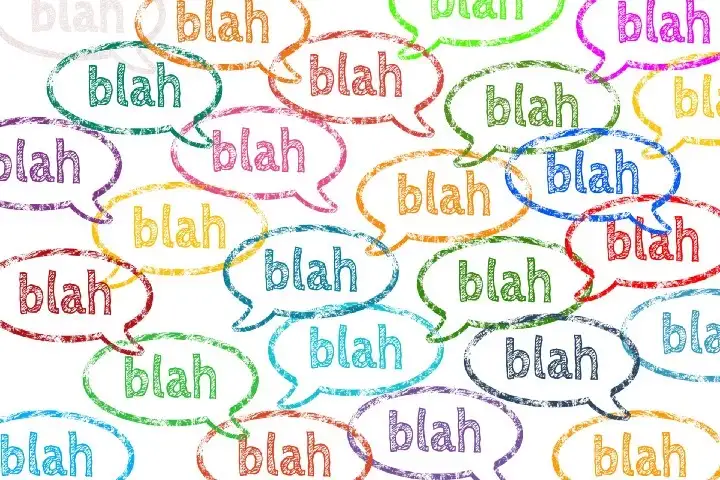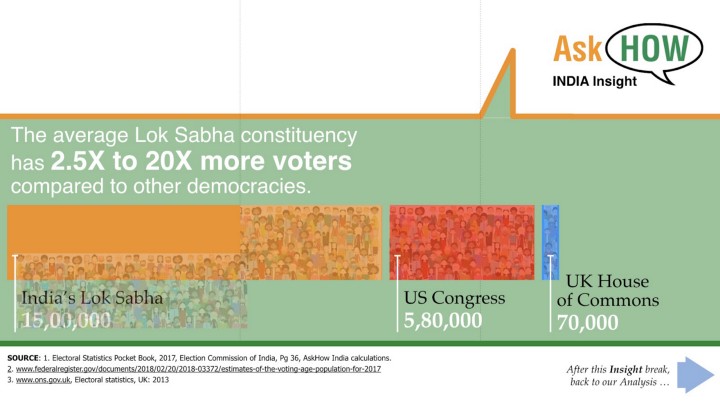How to have some good political discussionsfeatured
Authors: Yogesh Upadhyaya and Anurag Gupta (this post is written in first person but is the product of thinking and discussion of both authors)
When was the last time you were in a good political discussion? A good political discussion, by my definition, is one where the participants learn something new or appreciate a point of view better. Why are political discussions usually bad? It is because our opinions sit on top of a scaffolding of facts and frameworks (mental models of the world) and we have never examined this scaffolding thoroughly. Furthermore, when such opinions are challenged, our feelings get in the way of listening. All this is a recipe for repetitive and cantankerous conversations.
In this post, I will present the 3 Fs of a good discussion — Facts, Frameworks and Feelings. Then, I will suggest a simple technique that will help make at least some of your discussions better. Let us begin by looking at facts.

Facts
It is surprising how little we know about almost anything. Often, our opinions are based on incorrect facts. Let us take some examples. Many of us are frustrated by the quality of government services in India. I come across many people who believe that this is because government employees get a low salary. This is just incorrect. Salaries for government employees are generally much higher than for people employed by the private sector in similar jobs. Or take the fact that only one in four youth in India enrolls in a college. I bet that not many folk reading this piece would be aware of this. Or that on an average a Lok Sabha constituency in India has anywhere between 2.5 to 20 times the voters in other democracies. These facts, if widely known, can totally change a conversation about crucial topics such as employment and democracy in the country.

If a political discussion gets stuck because of a lack of agreement about a fact, then the solution is simple — Google. However, we all know that disagreement on facts is not the main reason for a discussion to get derailed. Many times, we agree on facts but come to opposite conclusions. This is because we have very different mental models, or frameworks, of the way the world works. Let us look at that next.
Frameworks
My father and I used to have many discussions and one recurring topic was foreign investment in India. The country liberalised its industrial and economic policy in the early 90s. My father had a deep distrust of foreign investment. Often he would ask me if I thought that the investors were coming to India for anything other than profit? He thought that it was a clinching argument. His mental model said that if the foreign company made profit it was automatically bad for India. My understanding of the world is different. I think that business is not a zero sum game and a flourishing business can help the society to flourish.
My father and I had very different frameworks for understanding the world. We agreed on a fact — that the motive for a foreign investor to invest in India was profit. But we had very different opinions on the implications of this fact. Why did we have different frameworks? Maybe it was because we grew up in very different times. From all accounts, 50s and 60s were times of shortages and protected businesses. Everyone — from politicians to popular movies — blamed ‘greedy’ businessmen for these shortages. I started my career in the 90s and could see the benefits of competing businesses. It doesn’t even matter why we had different frameworks and it certainly did not matter, whose framework was ‘correct’. The point is that our discussion would get stuck if we didn’t recognise that we had different frameworks.
This difference in frameworks can sometimes be about the objective of the discussion itself. One side could be arguing for what should be and the other side could be pointing out what the reality is. This is the famous normative versus positive point of view. Let us take an example.
India has seen intense conflicts about places of worship. Many Hindus believe that several mosques in the country were built on top of demolished temples. They want to reclaim their heritage, especially in places of special significance. Muslims understandably, do not wish to let go of their place of worship. Additionally, they have the fear that if one mosque is shifted or demolished many more would be too. This is very complex issue and many people try to intellectually side step it by saying, “In modern times, being religious is stupid.” Others may point out that most people in India are deeply religious. It does not matter what you wish the world were, you have to deal with it as it is now.
So, how do we overcome the differences in the way we understand the world? One answer is for everyone involved in a discussion to lay down their understanding of relevant facts and to do their best to state the frameworks that they think they are using. This is hard work. Often, our mental models are invisible to us. It takes a lot of thought to be even aware of a few of them and then a lot more work to articulate them in a way that is understandable to someone else. When I do this thinking in a conversation, my articulation is inevitably weak and self contradictory. I can get into this kind of conversation with very few people: people, who I trust to try to understand what I am trying to say and not judge me.
Laying down the scaffolding of facts and frameworks that supports your opinion is tough even when you take a lot of time. We should know. At AskHow India, we have presented relevant facts and frameworks for many complex issues and it can take us months to nail down what we want to say. The bad news is that even that is not enough in most situations. This is because the biggest barrier to a good discussion is our own feelings. Let us dive into them.
Feelings > (Facts + Frameworks)
The biggest barriers to a good discussion are our feelings. These feelings get in the way of listening and when you are not listening, you do not even know that you are not listening. Let me illustrate this with an experience.
I perform professionally as an Improv artist. In this kind of theatre, you go on stage with fellow artists and perform skits and long plays without a script. Listening is at the core of this art form. When you are creating the script as you perform, everyone needs to listen so as to be on the same page. When I train other improvisers, one of my favourite exercises is from the theatre legend Meisner. In this exercise, artists on stage repeat the last line of dialogue that they hear before coming up with their own dialogue. An example,
A: Should we go for a picnic? It is nice outside.
B: It is nice outside? The forecast was that it would be very hot.
A: The forecast was that it would be very hot? Well, right now it is not. I think we should take a chance that the forecast is wrong.
B: You think we should take a chance that the forecast is wrong. Hmm..I don’t know.
And so on.
This exercise may seem simple but is extremely tough even for experienced actors. You realise how little you listen only when you do this exercise. Actually scratch that. You realise how badly other people listen when you see them do it. It takes enormous effort to realise this about yourself. It took many videos of our shows for me to grudgingly admit to myself that I was as bad at it as many others.
Not listening in a discussion means that you are not learning anything new and it is our own feelings that are stopping you from listening. The subject of feelings is vast and I will restrict this post to only two of them. In my case the dominant reason for not listening is usually ego or a fear of looking foolish. For many other people, the reason is the need to be part of a tribe. I am a bit of an expert on the first one and so I will start with that.
Ego
Do you discuss to know more or to be right? I catch myself trying to be right in a discussion all the time and I am sure that I don’t catch myself many more times. As is well known, if you are trying to be right, then you wouldn’t be listening. Instead, you will be thinking of how to respond.
The other main reason for not listening is if what you are hearing goes against your identity.
I am a member of ___(Insert tribe)
Humans are social animals. We have a desperate need to belong to a group. The power of this feeling is best explained by a very short blog post from the guru Seth Godin which I have reproduced below in full
“People like us do things like this”
There is no more powerful tribal marketing connection than this.
More than features, more than benefits, we are driven to become a member in good standing of the tribe. We want to be respected by those we aspire to connect with, we want to know what we ought to do to be part of that circle.
Not the norms of mass, but the norms of our chosen tribe.
Seth Godin is talking about motivation to buy things. But this motivation is even stronger when it comes to believing things. I believe things because people like me believe those things. Because people I admire and respect believe those things. These beliefs are part of my identity and a part of what I aspire to be. In a discussion, I will stop listening if the facts or frameworks contradict the beliefs of my tribe. This is the reason that my social networks — FaceBook, Twitter, LinkedIn and even my networks in the offline world — will have like minded people and they will rarely do anything to weaken my beliefs.
The tribal tendencies get worse when the discussion is public. If you have witnessed a debate in a WhatsApp group, then you know what I am talking about — people desperately trying to signal their allegiance to a tribe and to show up the members of the other tribe.
To summarise, we have bad discussions because we do not share the same facts and frameworks. It is difficult to understand someone else’s facts and frameworks because our feelings get in the way. So how do we overcome these obstacles? One technique that can help is steelmanning.
Steelmanning
Many times in discussions, we distort our opponent’s arguments in an absurd fashion and then attack the distorted version. This is called strawmanning. As this article says, Strawmanning commonly takes the form of ‘So what you are saying is…’ and is very prevalent in TV studio ‘debates’. The opposite of strawmanning is to steelman. That is, to articulate your interlocutor’s arguments as well as you can.
A discussion can be very productive if you can articulate the opinions of others better than they can themselves.
However, steelmanning works only if all participants in a discussion are aware of the concept. More importantly, all participants should be in the discussion in good faith. They should be in the discussion to learn and not to reinforce their own certainties. It is very rare for these conditions to be met. Also, it is very cumbersome in casual discussion to explain steelmanning and then get the participants to use it. What can we do in such conversations?
The magic question
A question that can significantly improve the quality of a discussion is some variation of, “What would be the most reasonable case for a person to hold a view contrary to yours?” Let us illustrate this with an example.
Say you are an Indian like me and you are in a conversation with a friend from the United States. Your friend lives in a coastal city and is upset with his fellow Americans for voting for Republicans, specifically Trump. You can ask him the question,
“Nearly 75 Million voters voted for Donald Trump. What do you think are the most reasonable reasons for those voters to have made this decision? You can leave aside the people you think may be racist or low information voters.”
This is a brilliant question at many levels. It is a simple way of asking others to steelman what they are arguing against. The question also forces people in a discussion to think for themselves of possible opposing points of view. When people think of opposing points of view themselves rather than being told by someone else, there is a higher chance that they may think them legitimate. Finally, the answer to this question will help you quickly get out of bad political discussions. I got this question from Michael Malice and he described it as the main benefit.

This question does not come without drawbacks. Many people have not thought of why someone could hold a view contrary to theirs. Thinking about it can cause severe cognitive dissonance and that person could get very angry with you. Also, they could find you condescending for asking this question. There is an even bigger problem.
You have to answer the question yourself! Even your opinion rests on facts and frameworks that you probably don’t recognise and your feelings don’t let you listen to alternate points of view. To use this question on others, you need to be brave enough to use it on yourself. I believe something. Can I see how a reasonable person may come to a totally different opinion?
The few times I have tried to answer this question, I have found that I cannot immediately articulate why a reasonable person may have a different opinion. When I do succeed in articulating an opinion different from mine, my certainty about my own opinion drops. It is psychologically difficult to be in a state of low certainty about too many things. Especially, when the rest of the world seems to be absolutely sure of their opinions.
But then, if I cannot articulate any opinion other than mine, how much is my opinion worth? Not much I would say.
How do you make a discussion better? Do reply. Preferably in the comments section in the blog itself.
What we have written has been understood by wise people since ancient times so we don’t claim originality on any of this. However, we have practised the techniques that we are recommending and we know that they work some of the time. We recognise that we are often the reason why a discussion goes bad.
Our thanks to Manish for his suggestions and to Rajani for proofreading.
Yogesh: If you wish to stay in touch with my writing, follow me on medium. Click on the envelope icon to get your stories delivered in your Inbox. You can follow AskHow India (@AskHowIndia) or me (@YogeshUpadh) on twitter or on LinkedIn
Telegram channel: https://t.me/YogeshUpadhyaya
Anurag is wise and stays away from social media most of the time.
Author –
Yogesh Upadhyaya
(Yogesh Upadhyaya is one of the founders of AskHow India. Blogs are personal views.)
You can follow AskHow India (@AskHowIndia) or me (@YogeshUpadh) on twitter or me on LinkedIn or Medium. DM me if you wish me to put you on WhatsApp distribution list.



